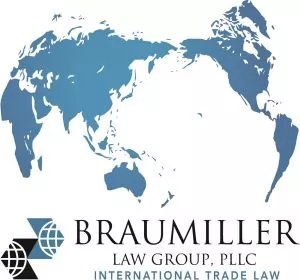- with readers working within the Retail & Leisure industries
- within Energy and Natural Resources, Corporate/Commercial Law and Technology topic(s)
- in United Kingdom
In 2022, the United States was the leading recipient of Mexico's tequila exports. In that same year, the U.S. imported more than 338 million liters of tequila from the country, more than 32 times the volume imported by Germany, Mexico's second most important tequila export partner. In fact the United States Mexico Agreement (USMCA – the free trade agreement signed between Mexico, the United States and Canada) promotes and protects the trading of tequila between these 3 countries as it acknowledges it is a distinctive product of Mexico. Accordingly, Canada and the United States shall not permit the sale of any product as Tequila unless it has been manufactured in Mexico in accordance with the laws and regulations of Mexico governing the manufacture of Tequila.
Generally, Tequila is a distilled spirit extracted from the blue agave plant, and technically speaking, it is an alcoholic regional beverage obtained from distilling "mostos":
- prepared directly and originally from material extracted at the facilities of an authorized producer – to be located within the Mexican territory set forth under the law
- derived from hydrolyzed or cooked core of the agave tequilana weber blue
- which undergo an alcoholic fermentation with yeast, whether cultivated or not,
- can be enriched and blended together in the formulation with other sugars up to 49% of total reducing sugars expressed in units of mass as set forth under the corresponding Mexican Official Norm, and that cold mixtures are not permitted.
When goods are exported under a definitive customs regime for final consumption abroad, the Mexican government, would basically close a file and lose interest in tracing the final destination of the exported goods. Nonetheless, tequila is one of those few exceptions where the Mexican government will continue tracing the product abroad until bottled/packed and consumed by the final consumer to make sure it complies with the broad set of regulations governing tequila exported from Mexico. Some of the main reasons are to protect the appellation of origin claim of the tequila and recognize it as a distinctive product of Mexico, as well as to make sure the product sold for final consumption complies with the safety and commercial information requirements.
In order to claim an alcoholic beverage as "tequila", it must be extracted, produced and developed in specific geographic areas within the states of Jalisco, Guanajuato, Michoacan, Nayarit and Tamaulipas in Mexico and comply with the requirements set forth under the law, such classification and type of product, agave, added sugars, authenticity, quality, authorized producers, packing, inspection, labeling and commercial information, etc.
An Authorized Producer is an individual or entity authorized to develop tequila within its facilities located within the geographic area in Mexico. Nonetheless, they can sign agreements with bottlers / packers located in various places, including the United States or elsewhere outside Mexico that may perform activities limited to filtering, diluting and packing the Tequila with potable, distilled or demineralized water in order to obtain a Tequila commercial content within parameters allowed under the law. Therefore, bottlers / packers cannot mature nor age tequila.
Both the Authorized Producer and bottlers/packers must comply with a specific requirement in order to mark and label their alcoholic beverages as tequila. Below are some of the recommendations and obligations specifically for bottlers/packers located in the United States or elsewhere outside Mexico:
- must sign co-responsibility agreement with the Authorized Packers regarding the appellation of origin claim,
- make sure the agreement is registered before the intellectual property authority in Mexico (IMPI) and request a copy of such official notice,
- make sure the Certificate of Packers Approval is issued by the corresponding authority and request a copy of such official notice,
- prepare label design for the product,
- brand certification
- request the certificate of authenticity to export tequila,
- obtain the registration number from the packer's official registry from the CRT,
- obtain from the Mexican authorities' prior authorization to pack tequila,
- make sure every shipment it receives from the Authorized Producer is covered by the compliance certificate (certificate of authenticity to export tequila),
- must show at all times that the tequila in bulk has not been contaminated during the delivery or receiving until final packing is completed,
- pack products that have been supervised by the Compliance Assessment Body only,
- its facilities cannot simultaneously pack products other than tequila, unless it has packing lines that are clearly separated one from the other,
- cannot have more than one tequila supplier by brand,
- file quarterly reports before the Compliance Assessment Body regarding entries and extractions of the tequila from its facilities, the initial and final inventories, and any waste during the given periods. The quarterly reports must include specific brands, volume, and lot number. The reports must include the exact quantities of the tequila by brand and final product.,
- keep updated records of purchasing invoices of tequila and packing materials, including labels, physicochemical specification analysis in compliance with the allowed parameters, certificates for exports or domestic transfer certification, packer approval certificates, etc.,
- comply with the industrial property requirements regarding the appellation of origin claim,
- comply with the marking and labeling requirements, (i.e., each pack must bear a legible label including the word "Tequila", the category and class, flavor, added aromas, colors, etc. net weight, alcoholic content, name and address of authorized producer, packer, brand, etc. This information may vary depending on if the tequila will be exported or packed in the Unites States or elsewhere outside Mexico),
- others,
Should the authorities detect any violation of the regulations, they may implement corrective actions, such as suspension and cancellation of the corresponding certifications, registrations, authorizations, permits, confiscation etc. In addition, failure to comply with some of the responsibilities above may result in sanctions imposed directly on the Mexican Authorized Producer. Therefore, it is important for individuals or companies doing business with tequila, to be aware of the legal implications so that its business is well protected, because the Compliance Assessment Body and other authorities maintain a permanent verification of the tequila compliance, this includes the packers located in the United States or elsewhere abroad.
The Mexican regulations governing Tequila are broad and complex. Therefore, this article was prepared for information purposes only and is not intended to provide any legal advice nor representation. You should consult with your Attorney for additional details and specifications.
Footnote
1. https://www.statista.com/statistics/311749/mexico-s-export-quantity-of-tequila-by-country/
Check out our new Digital Magazine Get the inside scoop on the Braumiller Law Group & Braumiller Consulting Group "peeps." Expertise in International Trade Compliance.
The content of this article is intended to provide a general guide to the subject matter. Specialist advice should be sought about your specific circumstances.
[View Source]

